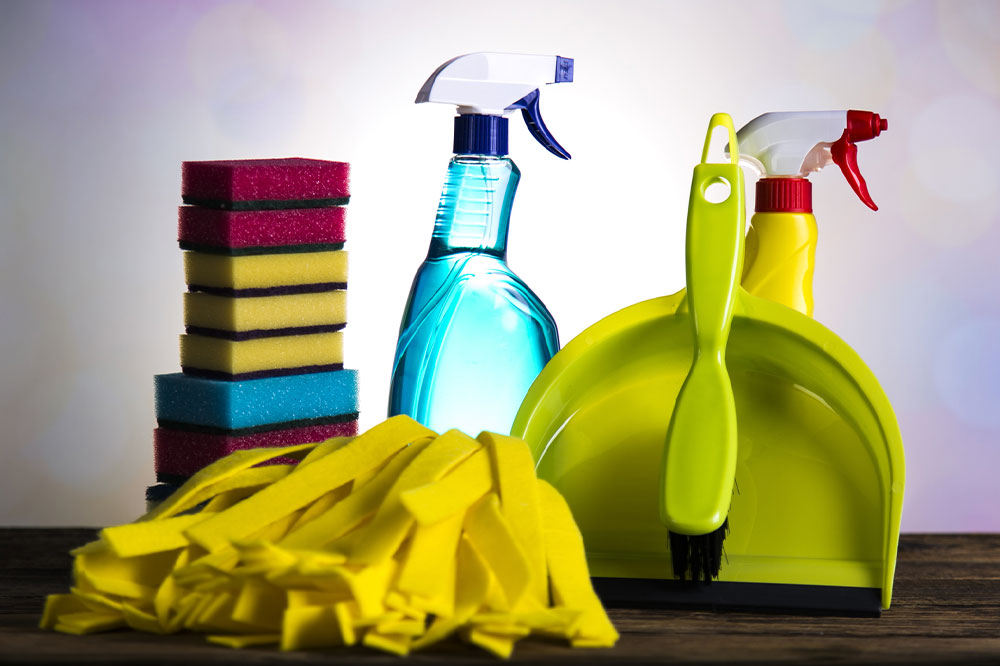Toxic ingredients of cleaning products to avoid for better lung health

A recent study suggests that people exposed to spray cleaning chemicals, like industry workers or cleaning personnel, were more likely to see a decline in lung function over time than those who weren’t. Besides causing health concerns in humans, some of the cleaning products’ ingredients can alter the water’s PH balance and affect aquatic animals. Keep reading to learn about chemicals commonly found in cleaning products that are best avoided for optimal lung function.
Impact of chemicals in cleaning products on the body
Some disinfectants, degreasers, and other cleaning products containing bleach and other harmful chemicals get absorbed through the skin or enter the body through inhalation. These chemicals may trigger allergic reactions in people who are continually exposed to them. They may also lead to lung injuries, asthma, and reactive airway symptoms. Patients with rhinitis, sinusitis, COPD, asthma, and other chronic lung disorders should exercise caution while handling these products.
Harmful chemicals in cleaning products to avoid
Sodium hydroxide
Also known as caustic soda or lye, sodium hydroxide dissolves in water and produces a strongly alkaline solution. The ingredient is used in drains, toilet cleaners, oven cleaners, dyes, and bleach. Long-term exposure to sodium hydroxide can cause severe burns in one’s eyes, skin, or lungs.
Bleach
Another household disinfectant used in cleaning products for the kitchen, floor, and bathroom is bleach. Fumes released from bleach can cause lung irritation, mainly if used in poorly ventilated areas. One can use natural disinfectants like baking soda or vinegar as an alternative.
Ammonia
Ammonia, a chemical with a strong smell, is commonly used in cleaning products for bathrooms, stainless steel products, and windows. It is known to irritate one’s lungs, throat, and eyes and should especially be avoided by people suffering from respiratory diseases like asthma. Ammonia, when mixed with chlorine bleach, releases harmful chloramine gas, which can irritate the eyes, throat, and airways.
Phthalates
Phthalates are used as fragrance agents in cleaning products, such as laundry detergents, fabric softeners, and room fresheners. These ingredients can irritate the lungs, aggravate respiratory issues, and even harm aquatic life.
Tips for safer cleaning
To ensure optimal lung function and avoid triggering reactions in one’s body, it is advised to use chemical-free or non-toxic cleaning products. It is best to check the ingredients list of any products before making a purchase. One technique to avoid inhaling toxic chemicals is to use masks and gloves while cleaning. If one cannot avoid using the chemicals, ensure the space is well-ventilated to minimize the amount of chemicals inhaled. People with respiratory or lung disorders should consult a specialist to determine if a cleaning product can harm their health.



